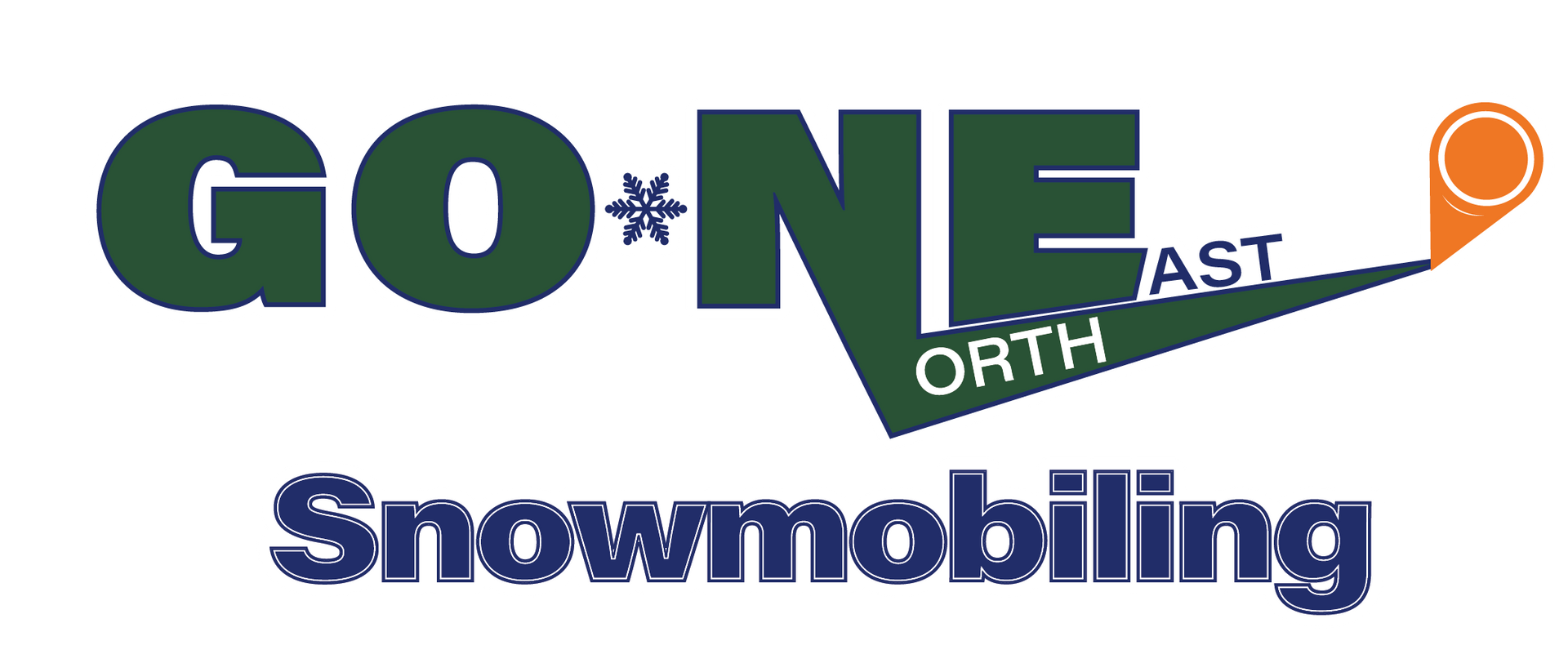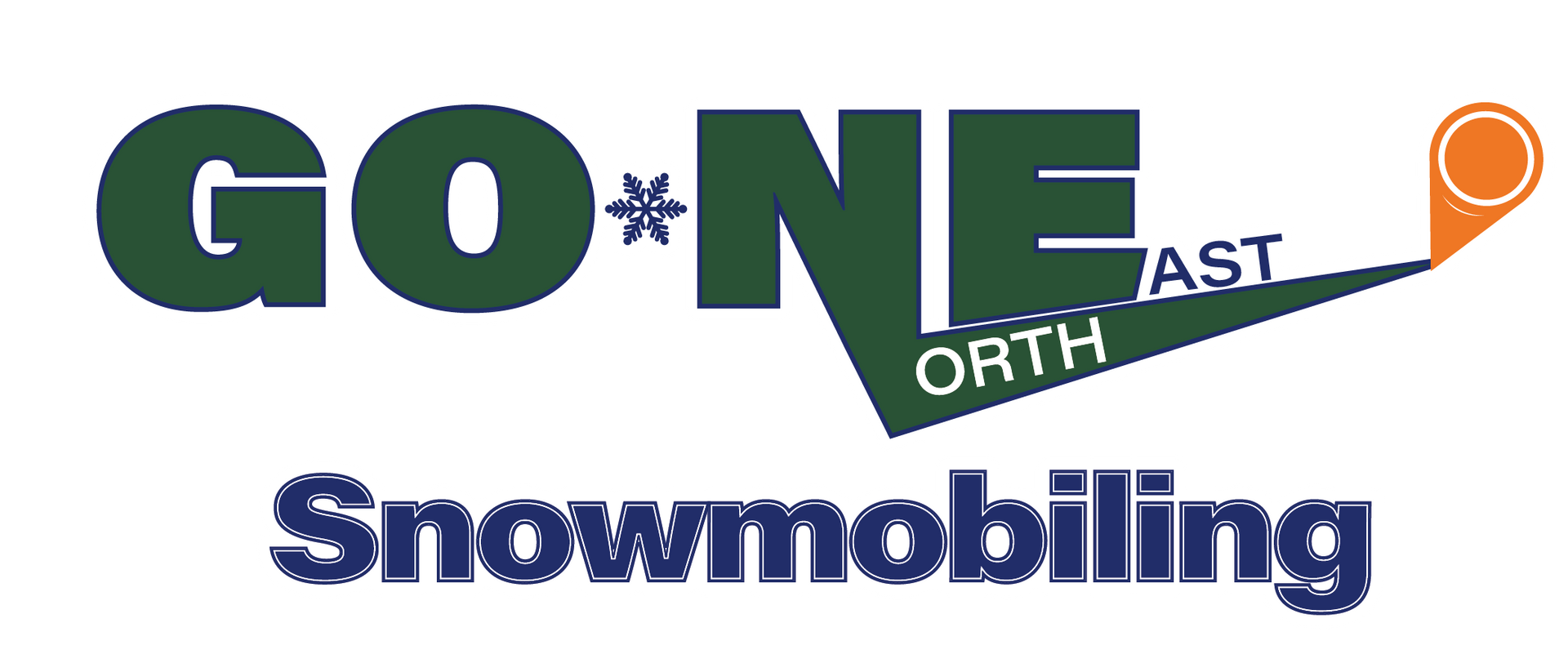Winter's Farewell: A Guide to Cleaning and Storing Your Snowmobile Gear
February 29, 2024
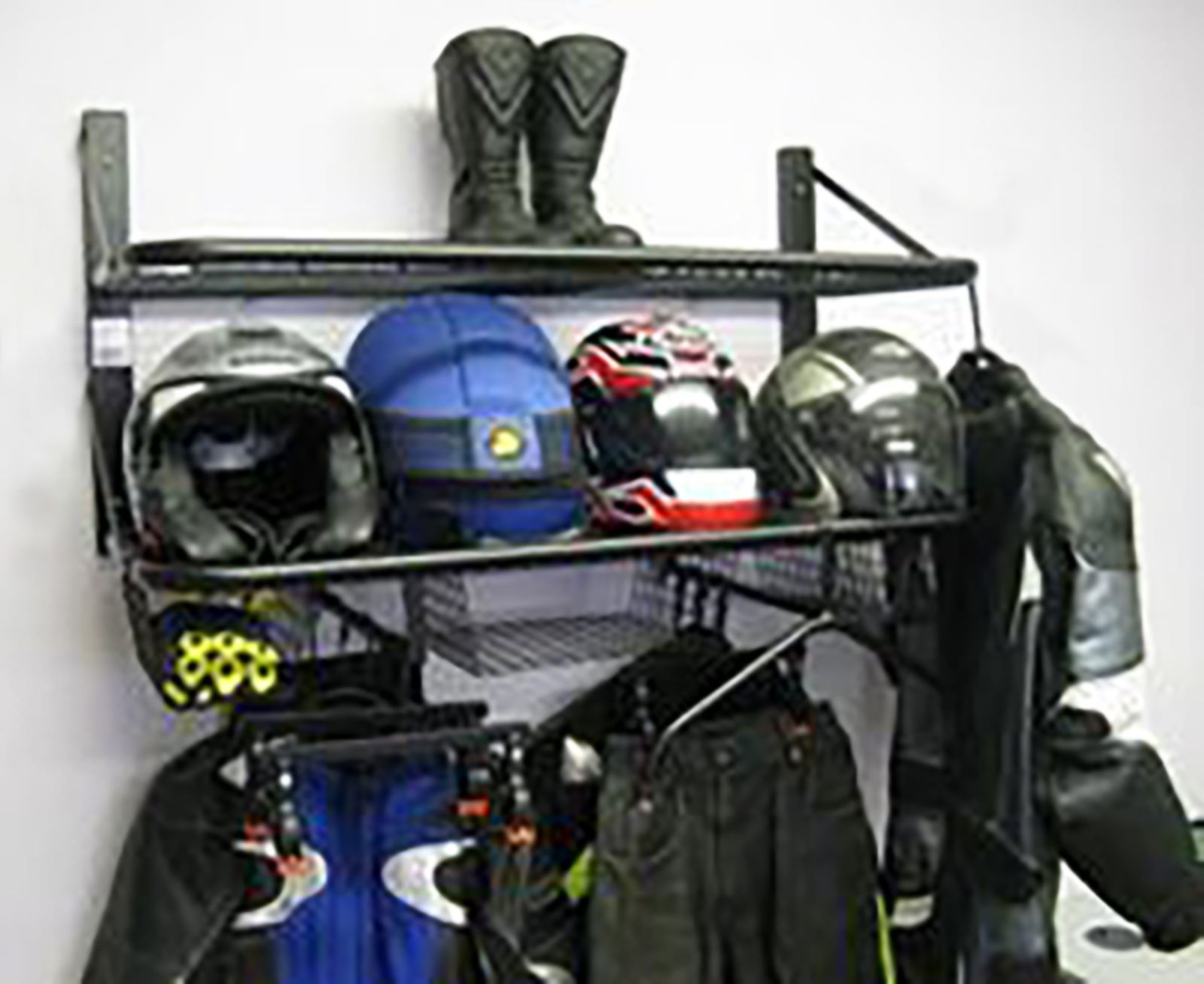
As the snowmobiling season ends, it's time to bid farewell to the winter adventures and prepare your gear for a well-deserved rest. Properly cleaning and storing your snowmobile gear is important to ensure its longevity and functionality for the next season.
The basics:
Before stowing it away, it's crucial to thoroughly clean it to eliminate any dirt, grime, or moisture. This proactive step plays a vital role in preventing mold and mildew development.
For storing your snowmobile gear, it is essential to place it in a cool and dry environment. Prolonged exposure to moisture and heat, such as in a garage or attic, can lead to damage over time. Optimal locations for storage include a cool, dry basement or closet.
Organizing your snowmobile gear by hanging it on hangers is an excellent method to maintain order and prevent wrinkles. Utilize hangers for your jackets, pants, and gloves, and neatly store them in a closet or wardrobe.
Specific items:
Helmet:
Your helmet
is one of the most critical pieces of snowmobiling gear, and it's essential to store it properly to keep it in good condition.
A damp cloth and mild soap are recommended to wipe the helmet's exterior and remove dirt. Check if the interior liner is removable and washable, and follow the manufacturer's cleaning instructions. Finding a dry and cool location to store your helmet away from extreme temperatures is best. It's always a good idea to store your helmet in a quality helmet bag
to protect it from dust and scratches.
Maintaining the clarity of goggles and face shields is equally essential. Cleaning the lenses with a lens-cleaning solution or a microfiber cloth prevents scratches. Ensure their protection by storing them in a dedicated bag or case to avoid any potential damage.
Smaller items:
If you have smaller snowmobile gear items such as goggles, balaclavas, and neck warmers, use a gear bag to keep them organized and in one place. This process will make it easier to find everything you need when it's time to hit the trails again.
Clothing & Gloves:
Check care labels for specific washing instructions on snowmobile suits and base layers. Some items may be machine washable. After washing, ensure thorough drying before storing. You may want to hang clothing to prevent wrinkles and damage and store them in a cool, dry location.
To clean your gloves
or mitts, it is advisable to hand wash them using a gentle detergent in warm water. Carefully squeeze the gloves from fingertips to wrist to eliminate excess water without twisting. When drying, hang them with the fingers facing upwards. Avoid using a washing machine, tumble dryer, or any form of chlorine bleach, as these methods can compromise the integrity and quality of the gloves. Stick to the recommended hand-washing process to ensure your gloves' longevity and optimal performance.
Boots: To ensure your boots' longevity and performance, following a few critical steps before storing them is essential. Firstly, brush off any excess debris and dirt from the exterior. This helps prevent the accumulation of moisture, which could damage the material over time. Secondly, if your boots
have removable liners, take the time to remove them for thorough cleaning. This not only maintains the freshness of the liners but also ensures a more hygienic environment inside the boots. Lastly, double-check that the boots' exterior and interior are completely dry before storing them in a cool, dry place. Moisture left in the boots can lead to mold growth and deterioration, so a thorough drying process is crucial for preserving the quality of your footwear. Following these steps will contribute to your boots' overall care and longevity, keeping them in top condition for future use.
Body Armor:
Avoid machine washing or dry cleaning if you use body armor such as TekVest. The safest method is handwashing, using mild soap products. You can use a shower wand to spray-clean the vest and allow it to air dry. Most models are made from 100% synthetic materials such as polyester, nylon, and other durable fibers. You can wipe down the plastic pieces with Isopropyl alcohol.
Note:
A gentle detergent
is usually a hand dishwashing soap that exclusively comprises surfactants capable of dissolving dirt and grease, in contrast to a soap with builders, which falls into the category of moderately strong detergents. Well-known "mild" detergent brands include Joy, Ivory, Dawn, and environmentally friendly choices such as Seventh Generation, Ecover, and Dishmate.
Inspecting all your gear:
Like your snowmobile, regular inspections and maintenance of your safety gear are essential to identify any wear and tear compromising safety.
Safety Compromised:
Regular inspections help identify damage or issues that could compromise your safety. Neglecting inspections may lead to overlooked damage or wear, compromising the safety features of the gear.
Reduced Performance:
Snowmobile gear, such as helmets, goggles, and gloves, contributes to your overall comfort and performance. If you don't inspect and maintain your gear, it may not function optimally, affecting your ability to ride comfortably and safely.
Increased Wear and Tear:
Regular use, exposure to the elements, and the rigors of snowmobiling can cause wear and tear on gear. With inspections, you may see signs of deterioration, leading to accelerated damage and potentially rendering the gear unusable.
Unexpected Failures:
Over time, gear may develop issues that are not immediately apparent. Without regular inspections, you might discover problems only when they lead to unexpected failures, such as a malfunctioning jacket zipper or a broken helmet strap while out on the trail.
Uncomfortable Riding Experience:
Damaged or ill-fitting gear can result in discomfort during rides, affecting your overall enjoyment of the snowmobiling experience. Annual inspections can help identify potential issues before they impact your comfort on the trail.
Compromised Visibility:
Gear such as goggles or visors can become scratched, fogged, or damaged over time. Failing to inspect and clean these components can impair your visibility on the trail, posing a safety risk.
Ineffective Insulation:
Cold weather gear, including insulated jackets and pants, relies on intact insulation for warmth. Inspecting and maintaining these items is crucial to ensure they provide the necessary insulation during cold rides.
These simple tips will give you peace of mind that your snowmobile gear is properly stored and ready for use when the next winter season arrives. Furthermore, properly storing your gear will also help it last longer and save you time and money in the long run.
Sign Up for Our Newsletter!

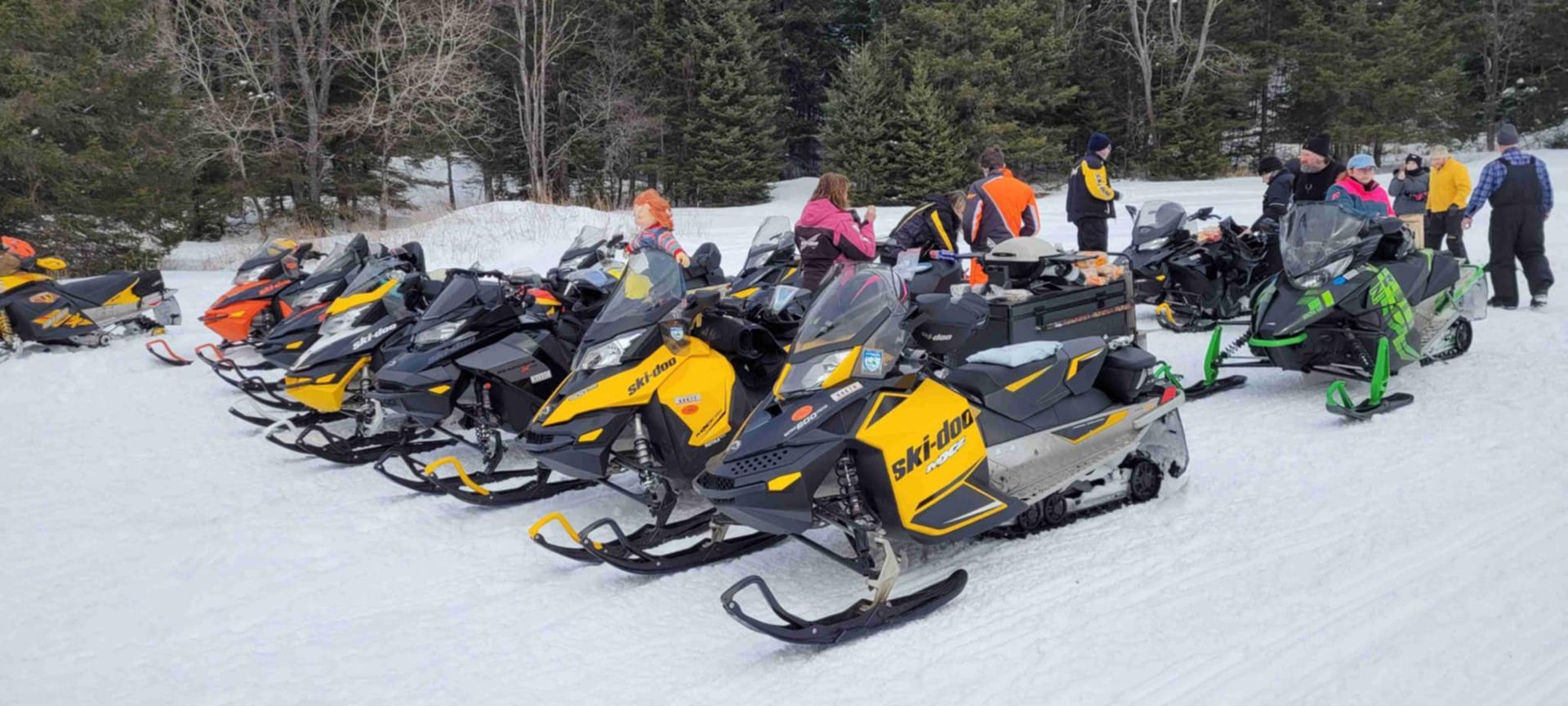
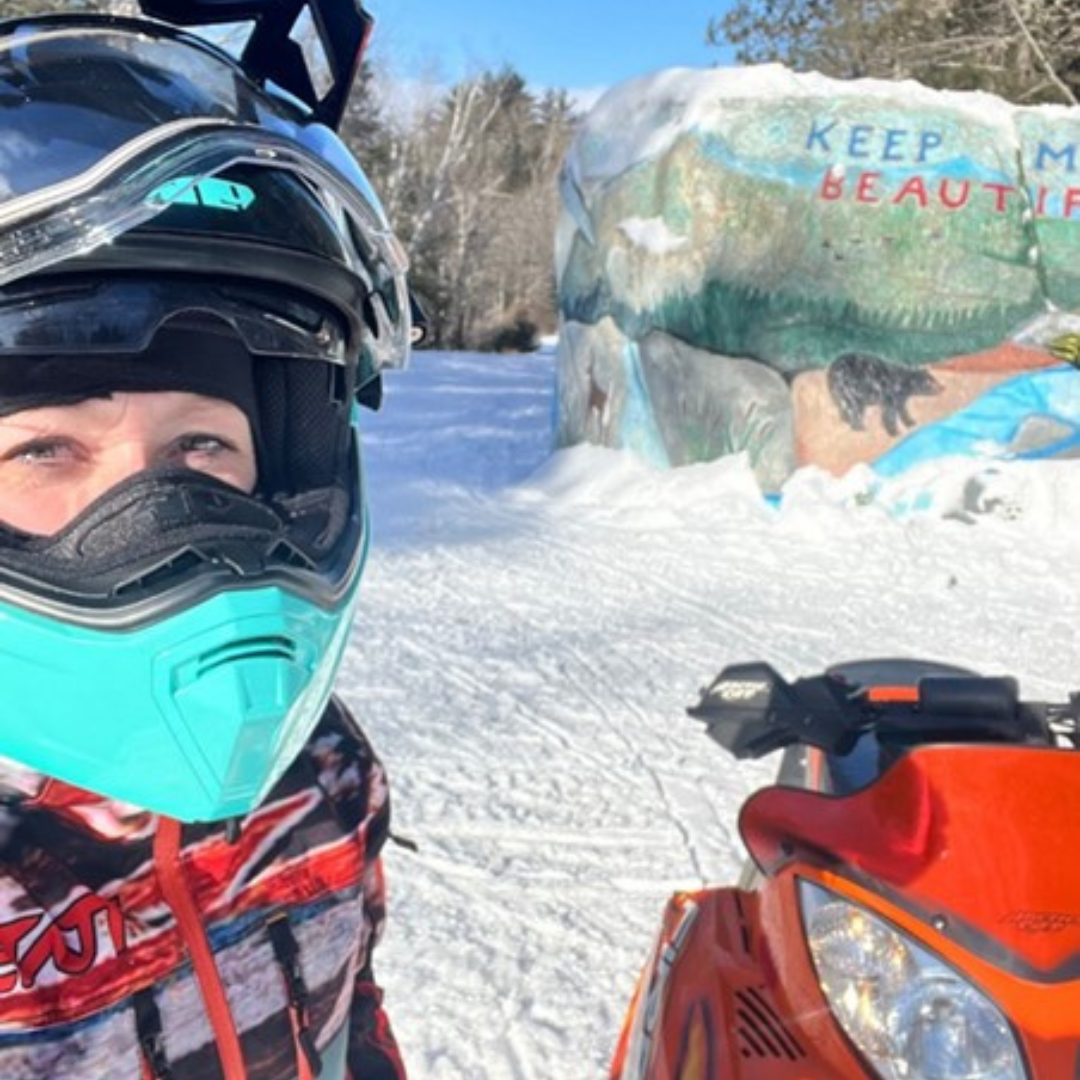 More Posts
More Posts
Go Northeast Snowmobiling Blog

If you're planning a snowmobile getaway and are undecided about where to go, Fort Kent, in Aroostook County, Maine, (located in St. John Valley) will not disappoint. Located on the Canadian border in northern Maine, Fort Kent offers an extensive trail system, along with numerous nearby amenities. The Fort Kent Sno Riders is the local snowmobile club that oversees hundreds of miles of the trail system in and around Fort Kent. https://www.fortkentsnoriders.com/ Trail maps are available at the Fort Kent Chamber of Commerce, 112 W Main St, Suite 1, in Fort Kent. https://fortkentchamber.com/ America's First Mile GPS Coordinates 47.2487° N, 68.6022° W A granite monument that marks the beginning of US Route 1, a 2,369-mile highway stretching from Fort Kent, Maine, to Key West, Florida, making it the longest north-south road in the United States. Photo op: Photos are welcome in front of the monument; however, only foot traffic is allowed—no sleds are permitted on monument property. Rock's Diner Conveniently located across the street from America's First Mile, this diner "rocks" with delicious food at affordable prices. Owner Tracy Carons' hospitality is top-notch, and she loves seeing riders stop in, enjoy a home-cooked meal, and warm up before getting back out on the trails. Riding tip: There is ample sled parking in the parking lot out back, as well as a back door for entry and exit. https://www.facebook.com/rocksdiner/ 207-834-2888 Junction 19 Vacation Home Seeking a cozy, but spacious location to relax after a long day of riding? The J19 Vacation Home is a perfect choice. A beautiful trailside home that provides all the modern amenities, including a fully equipped kitchen, washer & dryer, and a hot tub. There is plenty of space for two couples and ample parking for trucks and trailers. Bonus: The perfect wilderness feel while still being close to town. https://junction19co.com/vacation-home / 207-436-0067 Camel Brook Camps Considered a snowmobiler's paradise, Camel Brook is an ideal location for those who prefer a cabin lifestyle. Traveling with a crew, no problem. There is plenty of parking room with trail access right from the property. Park your sled right outside your cabin each night with peace of mind. Travel tip: Hang up your gear conveniently after a long day of riding. There's plenty of space. https://www.camelbrookcamps.com/ 207-316-8324 Can-Am Crown International Sled Dog Races – February 28th, 2026 This event is a Fort Kent tradition, and what better way to attend than on your sled? The race route follows the Heritage Trail, where snowmobilers can pull off the rail trail to view the races. If you are traveling along the trail during race hours, it is suggested that you slow down, watch out for the race teams, and turn off your engine when possible, out of respect for the mushers and their dogs. Tip: Best viewing times are on Saturday between 8:00 a.m. and 11:30 a.m. https://can-am-crown.net/about/about-the-race.php

A Small Town in the Northeast The small town of Frosthaven is nestled in a valley surrounded by towering pines and snow-capped peaks. Winters are long, cold, and breathtakingly beautiful. For decades, snowmobiling had been a cherished tradition, a way to traverse the vast, snow-blanketed wilderness. However, no snowmobile clubs existed in this version of Frosthaven’s history. It wasn’t that snowmobiles didn’t exist—locals and tourists still used them. But without clubs to organize trails, advocate for rights, or foster camaraderie, the sport was an entirely different experience. Chaos on the Trails Bob strapped his helmet and prepared to ride his snowmobile through Pinetree Pass. He loved the ride's thrill, the engine's roar, and the quiet that followed when he stopped to take in the view. Yet, every trip was fraught with uncertainty. Without designated trails maintained by clubs, riders forged their own paths. Some riders crossed private property, angering landowners. Others ventured into environmentally sensitive areas, damaging the ecosystem. Bob had heard horror stories of snowmobilers getting lost in treacherous terrain without clear signage to guide them. As he revved his engine, he worried about another issue: the rivalry between riders. Snowmobiling had become competitive and territorial without a club to mediate disputes or encourage a sense of community. He had recently been shouted at for "stealing" a trail someone claimed as their own, even though it was just an open stretch of forest. “I wish there were some rules and regulations around here,” he muttered as he sped off into the wilderness with doubt and uncertainty. A Fading Tradition Miles away, Tim sat on his porch, gazing wistfully at the untouched snow draping the fields. He was in his seventies now, and his body didn’t allow him to ride like he used to. In his youth, he’d gather with friends after a day on the trails, warming up with a hot “adult” beverage at the local lodge and swapping stories of their adventures. Now, snowmobiling felt lonely. There were no clubs to organize meetups, no charity rides to unite the community, and no lodge gatherings to share tales of near misses and scenic views. The sport had become individualistic, with riders often going solo or sticking to tight-knit friend groups. Tim sighed. “Kids these days don’t know what they’re missing,” he told himself. A Community Fractured The lack of clubs also meant a lack of advocacy. When a proposed law threatened to ban snowmobiling near Frosthaven’s largest lake, there was no unified group to push back. Riders tried to fight it independently, but without organization, their voices were drowned out by environmental lobbyists. “It’s not fair,” Bob said at a town hall meeting. “We’re not all reckless! Most of us respect the land and follow the rules.” “But who enforces those rules?” a council member asked. “Snowmobiling has become too chaotic. Without proper oversight, it’s harming Frosthaven’s environment and reputation.” The council voted to restrict snowmobile access to large parts of the region. Riders were devastated. A Vision for the Future Bob couldn’t stop thinking about how fragmented the snowmobiling community had become. What if things could change? One evening, he sat with Tim, listening to his stories of the “golden days.” “Why don’t we start a group?” he asked. Tim raised an eyebrow. “A club?” “Exactly! We could map out trails, work with the town council, and even host events. It might take time, but it could bring people together, and get the youth more involved since we old-timers are aging out.” Tim’s face lit up. “I like the sound of that. It won’t be easy, though. You’ll need to rally the riders, convince the landowners, and build trust with the council.” “I’m ready to try,” Bob said with determination. The First Frosthaven Snowmobile Club Bob’s idea sparked something in the town. Slowly, he and Tim gathered supporters. They hosted meetings in Bob’s barn, inviting anyone with a snowmobile and a passion for the sport. They reached out to landowners, promising to create and enforce responsible trails. After a year of effort, the Frosthaven Snowmobile Club was born. The club organized trail cleanups, negotiated access to private land, and marked safe routes through the mountains. It even planned the town’s first snowmobile rally, bringing riders together for fun and camaraderie. Snowmobiling in Frosthaven was transformed. What had once been chaotic and isolating became a vibrant, united community. The club preserved the sport, involved the youth, and fostered a sense of belonging and purpose. Moral of the Story Snowmobiling would still exist without snowmobile clubs and associations, but it would lack the structure, safety, and sense of community that makes it so viable and special.

Introduction: If you asked Amanda Page what her true passions are, she would probably say family, friends, her dog Brock, her two horses, trucks, and a long list of outdoor activities. When I first met Amanda, a Registered Maine Guide, I could tell almost immediately that she was passionate about life. She is very kind, has a great sense of humor, and is personable and genuine. Before we even hit the trail on our hike up Haystack Mountain in Liberty, Maine, I felt very comfortable with Amanda, as if I had known her for a long time. I was doubly impressed with how prepared she was for our impending hike. Even though it was a shorter hike than most, she was outfitted with everything necessary in case we encountered any issues. She was very knowledgeable about the area, and when the walking path suddenly veered in a different direction than what she remembered, she knew which turn to make. Her confidence made me feel at ease. Haystack Mountain Hike & Shop Talk: It was a gorgeous day on top of Haystack. It was breezy and clear, and the temperature was in the 70s with blue skies. We dropped our backpacks and took in the panoramic view of Waldo County. We took pictures and video clips and naturally talked about snowmobiling. Amanda is an avid snowmobiler and is familiar with the Maine Highlands region. She frequently trailers north to the Shin Pond —Mt. Chase area and also enjoys riding out of Medway and East Millinocket/Millinocket. She explained that when she’s not in Shin Pond, she typically leaves from East Branch Snow Rovers Club in Medway as it is closer to home, but going from the large parking lot across the road from Northern Timber Cruisers is an excellent option for those who would like to cut off a few extra miles on the sleds and be closer to the Baxter Park loop and New England Outdoor Center , a.k.a. NEOC. When the snow is optimal during the winter, she always enjoys a great trail ride. She also loves catching views of Mount Katahdin, which she hikes from springtime through fall. In fact, Katahdin is one of her go-to hikes when guiding clients. Matagamon Wilderness is a favorite stop in the region for great food, fuel, and hospitality. She loves their baked goods, delicious burgers, and homemade bread, which she thinks adds a special touch. Amanda's new venture: I enjoyed learning about one of Amanda's new ventures, off-trail snowmobile riding. Her first off-trail riding experience was in the winter of 2022/23, held at Dean's Den in New Canada, Maine. This establishment has a great facility, and the people who own it are top-notch. They will connect you with a guide and rentals if needed during your stay. She snagged a spot at an all-woman clinic held by Let 'Er Rip LLC , hosted by the lodge. The entire group ate meals there, packed lunches for the trail, and had a great time. She plans on going back every year for Ladies Clinic weekend! The most important advice she can offer when taking part in off-trail riding is to hire a knowledgeable guide and have written permission from the landowners to access any land you'll be riding on, including the parking location and trailhead. Hick Chick Maine Adventures - Services/Website/Social Media: Amanda currently offers many outdoor adventures and will soon add snowmobile-guided tours. One of her goals for the 2024/25 sled season is to lead a three to four-day backpacking loop trip where riders carry their clothes on their backs to different locations throughout Northern Maine. Stay tuned! Her website has lots of information and exciting blog posts about her favorite locations and adventures. In her own words, "I believe you must bring your whole self to the table if you want to thrive in today's crazy world: your personality, your sense of humor, and most importantly, your heart. All of these elements brought me to found Hick Chick Maine Adventures. I invite you to explore my site, learn about my passions, and explore what excites and interests you". Final thoughts: In conclusion, I feel lucky to have met Amanda. I look forward to recommending her services, as she is an excellent choice for any Maine-guided hiking or snowmobile adventure! Website: https://www.hcmaineadventures.com/ Facebook : https://www.facebook.com/hick.chick.me/ Instagram: https://www.instagram.com/hick.chick.me/
